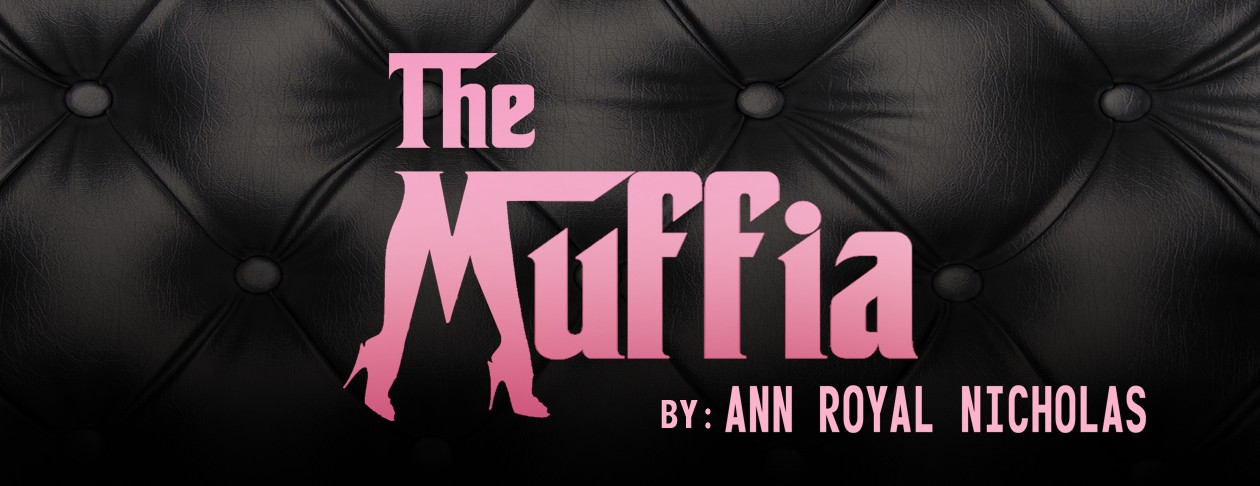 SPOILER ALERT: Depressing but curiously uplifting reality check.
SPOILER ALERT: Depressing but curiously uplifting reality check.
You’ve written your book—yippee, you! Congratulations, Mazel Tov. Now the tough part: you have to sell it. In 2014, even if you have a publisher, it falls to YOU to sell your book. To that end, you’re rackin’ up Facebook likes and you have your blog; you’re a posting presence on Pinterest, Google+, Tumblr, Goodreads and Instagram and getting followers on Twitter that you’re not even paying for (go you!) You’re guest blogging and cross-linking and the reviews coming in for your book (even from people you don’t know!) are stellar. You write sequels and prequels and go to writers’ conferences and attend classes about writing. You may even teach writing because—presuming you’ve done all the above—you know more than most. In short, you’re doing everything the social media experts have told you to do to get your book noticed and yet sales are still as though you’re selling sand in the Sahara, which is not far off considering 900 books get published in the U.S. every single day.
“But my book is good, people should notice me!” you say, meanwhile thinking, how can it be that E.L. James sells Fifty Shades of Gray (which the majority of reviewers called dreck) to Hollywood for $12 million when you can’t sell enough books to feed your goldfish? “It’s not fair,” you whine. “I’ve been doing this for so long—certainly longer than E.L. James! Somebody notice me, please, oh please!” Yeah well, get in line.
A psychotherapist I am not and in my pretty crappy acting career, I’ve never played one on T.V., but I can say with some authority (and more than a dash of common sense) that accepting certain realities in life will stand one in better stead than believing in snake oil and the folks that sell it. In the independent author world, snake oil is buying likes and followers on social media and believing that’s going to convert to sales. Sure, it might look impressive to have 10,000 followers, but when over half of them are posting in languages you and your prospective readers can’t read, they don’t count. They’re shills. In my case I have over 3000 Twitter followers but I bet only 100 of them have bought one of my books. Probably less.
Of course you have to do something to get noticed, and thereby sell books. But if everyone’s doing the same thing, hanging out on social media at what Mary Walters calls the equivalent of an online water cooler, then it’s going to be hard to stand out, right? Ever watch a Twitter stream go by? Who has time? Certainly not other writers; they’re either writing or sending out their own tweets that no one is reading. With all seriousness, there are very few writers on social media scouring other writers’ posts to find authors they don’t know about so they can buy their books. Like the majority of the reading public, swamped with too many choices, they’re looking to trusted sources to help narrow them down and those trusted sources are still in the pocket of the few major publishers who put out books written by the chosen ones—star writers like Franzen and Grisham and celebrities with ghost-written memoirs. Okay sure, a few new writers squeak into the big 6 every so often to give the rest of us hope, but chances are they knew somebody. What’s that old trope about success: 10% inspiration, 10% perspiration and 80% luck? Put that against the backdrop of declining book sales and what we’re looking at, people, is a rather bleak landscape for the rest of us. A tree may grow in Brooklyn but not without a lot of help.
“All right,” you say. “Enough cynicism and negativity.” You read blogs to be uplifted. “Can’t you give us some positive, concrete and constructive advice?” Well here it is… Get Over Yourself. Stop whining and kick on, as my old riding instructor used to say. Just get on with it. If you are writing books, you are very lucky. You could be destroying your kidneys as a long distance trucker. You might be working at a slaughterhouse or as an Andy Gump servicer. Don’t misunderstand: we need these people. They are doing things that society needs. But us? We are writing books. What a luxury. How lucky we are! You can complain about lack of book sales; it may even be healthy to vent but be real—these are rich people problems.
You have to ask yourself why you write. Is it because you want to be famous and make a lot of money? Because—and it’s the same with acting—these are not, nor have they ever been, good reasons to write books, Doh! Accepting reality with respect to writing is figuring out why you write. If you have something to say, you love to write and feel great having written, then you’re following your calling and should keep doing it for no other end than these. If you enjoy social media, and think it’s helping, I’m not saying don’t do it, only that I wouldn’t believe what the snake oil folks are pitching: that being big on social media will get you book sales. There’s no syllogism there.
Getting book sales is not a science. It’s an art form and one that’s rarely displayed using social media where most of what gets posted is noise. We all know that in order to sell, wherever it is you’re selling, one needs to get attention. But how? Securing a photo of Oprah carrying your book on her vacation would jump start sales in the same way Michelle Obama has launched the career of many a young fashion designer by wearing their creations. Having that photo would work in a magazine, on TV and possibly on Twitter too if you could get it retweeted (good luck getting those fake Twitter followers to retweet you). But how do you get Oprah (or Matt Damon or Sophia Vergara) to carry your book? Well, you could stalk them (not recommended) or you could Photoshop a picture of them holding your book (also not recommended). Sigh of frustration. So what do you do to get attention?
There’s no magic path to success and if there were, it would soon no longer be magic as everyone would be doing it. While it’s true we’re all supposed to be hawking our books to get noticed, I submit that most writers don’t like selling; we particularly don’t like selling ourselves. Interestingly—or stupidly—I have chosen four different career paths: playwright, mediator, actor and novelist and each of these requires other people to “like” me in order for me to find success. And for each of these endeavors I have discovered a few truths about making a sale or getting a job, which usually work when I have the energy to follow my own advice. Nothing revolutionary; just a couple of things to keep in mind when you’re feeling frustrated at having to sell a book when what you want to be doing is writing your next one:
1) Meeting people face to face is still the best way to build fans—particularly when no one knows that you or your book exists. Though writers are generally content keeping their own company, it’s good to get out in the world. Consider it “research” if you need a better reason than selling yourself. You can try giving your books to people who seem interested and ask if they’ll write a review. Volunteer to speak to groups that might find commonality with the characters in your stories.
2) Be in the social media agora because these days not being there looks weird but don’t have unreasonable expectations about the benefits. Post on a regular basis, even if it’s only once a month, just to keep up the presence. Alternate between the “Hey you, buy my book” type of post and a more nuanced post about the world of your characters. If you can learn Hoot Suite or some other scheduled release software, you can set up a a lot of tweets ahead of time, so you don’t have to think about it. Use social media but don’t expect much because it is what everyone else is doing. If you don’t do something differently, you’ll just be part of the noise.
The main advice I have is to keep writing because the thing is selling books and writing books are different art forms and you can’t be angry with yourself if you’re good at one and not the other. We all need to be realistic about the chances of our books being discovered; especially if we’re not willing to do what it takes—coming up with something new—in order to be noticed. If you write because you love it and couldn’t care less if anyone bought your book, you’re probably the type to find solace in the stories of Vincent Van Gogh and countless other artists who found no purchase during their lifetimes. On the other hand, if selling means a lot to you, then you gotta get out there and meet people, pitch and talk and smile and hope that eventually you’ll get lucky. Do you know the Daft Punk lyric, “I’m up all night to get lucky?” Even those hot sexy guys at the top of the pop charts know if you’re not out there playing the game, no one knows you’re there. In large part, we make our own luck.
Ann Royal Nicholas is the author of The Muffia series of books, Homegrown: The Terror Within (under the name Cialan Haasnic) and Wine for Dummies (Royal Mack). www.annroyalnicholas.com
 So much has happened with the house next door, I barely know where to pick up the story. Last time I told you what was happening, we the neighbors—well Buddy mostly had discovered that the occupants of the monster house next to me had installed super industrial high speed bandwidth cable with the capability of a Google server farm, which to Buddy meant there was no question that illegal business activity was being conducted inside that needed fast, reliable Internet. The house looks like an office building and has looked like one ever since it was built so giving the owners the benefit of the doubt, maybe they just wanted to complete the package; now it really was an office building. The only problem is, it’s an office building in a residential area that isn’t zoned for office buildings.
So much has happened with the house next door, I barely know where to pick up the story. Last time I told you what was happening, we the neighbors—well Buddy mostly had discovered that the occupants of the monster house next to me had installed super industrial high speed bandwidth cable with the capability of a Google server farm, which to Buddy meant there was no question that illegal business activity was being conducted inside that needed fast, reliable Internet. The house looks like an office building and has looked like one ever since it was built so giving the owners the benefit of the doubt, maybe they just wanted to complete the package; now it really was an office building. The only problem is, it’s an office building in a residential area that isn’t zoned for office buildings.

